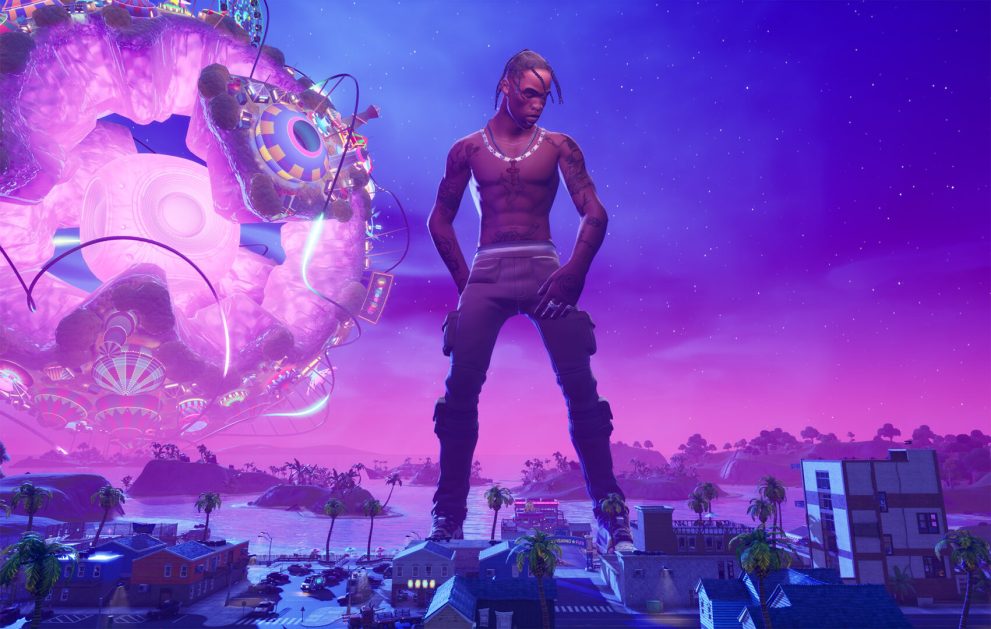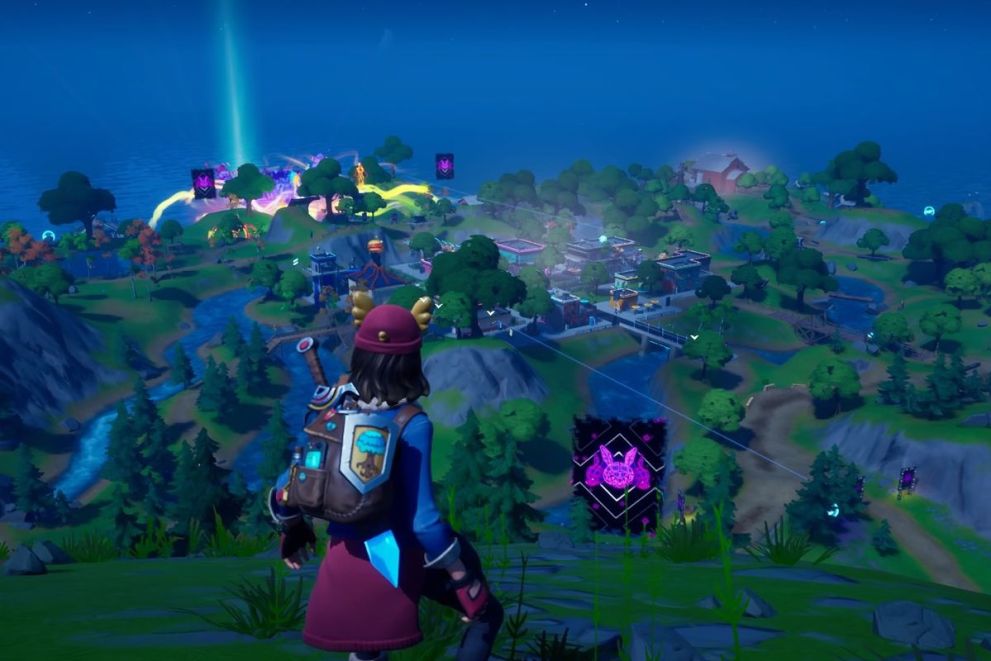Last week, Epic Games announced the Fortnite Rift Tour, a new in-game event to help mark the beginning of the end of the current in-game season, featuring Ariana Grande as the headline (and possibly only) act. Much like last year’s Travis Scott experience, the event will feature an iconic pop star, some exclusive in-game items, and a bunch of quests for players to complete before, during, and after the event actually takes place.
If Scott’s Astronomical event from last year is any indication, Ariana Grande’s Rift Tour will feature plenty of trippy in-game effects and visuals to really emphasize just how cool and unique these digital experiences can be. R
Even I was rather impressed by the Astronomical event last year. As someone who doesn’t identify as a ‘fan’ of Scott’s music, Epic Games managed to craft an experience that was enjoyable regardless of whether you like the bone-rattling bass-y beats of the rapper, or the bars that he spits over the top of them, or not. It was psychedelic, unique, and a stark reminder of Epic’s ambitions and vision for the future of its live-service title.
You’ll notice I purposefully avoided referring to Fortnite as a Battle Royale title in that last sentence. Or maybe you didn’t, but I did! That’s because it’s becoming increasingly clear that Epic Games envisions Fortnite’s future as far more than a last-man-standing battle to the death. It’s slowly but surely edging ever closer to becoming a full-fledged Metaverse… even if it is in its very early stages.
I spoke about Fortnite’s future as a Metaverse last year following the launch of Party Royale, the game’s combat-free island where players can watch things on an enormous TV, enjoy minigames with friends, attend concerts, watch movies and generally just hang out. It’s a virtual social spot… which is more or less the basis of a metaverse. A digital world in which players can be whoever or whatever they want to be, and simply exist within the world.

Even since Party Royale’s launch and the Astronomical event last year, Fortnite has been taking steps to establish itself as a metaverse. After all, where else could you see Lara Croft headshot Rick Sanchez (from Ricky and Morty fame) in the head, or watch God of War’s Kratos bust out the orange justice dance in sync with Batman, Captain America, and an anthropomorphic banana man? Exactly, nowhere.
From the outside, it’s easy to mistake all of these pop culture cameos as a means of simply cashing in on their popularity, but it’s quite the contrary. Just as Travis Scott attracted over 12 million people to Fortnite to watch the in-game event, so do all these character skin cameos. It instills a sense of trust and reassurance that Fortnite is now a household name that’s here to stay.
Epic’s also, intentionally or not, scheduled these digital concerts during a time when live music concerts and shows have been canceled due to a pandemic that’s hindered our normal social lives and plans. If you can’t see the real thing, a giant hologram with crazy effects and visuals is the next best thing.
While another music concert in-game may not necessarily seem like a step closer to Fortnite becoming a Metaverse, it shows Epic’s determination to turn that vision into a reality. It’s also the first step in establishing a calendar of in-game events that players can look forward to experiencing each year. Perhaps in a few years, we’ll have a fully-fledged music concert with multiple iconic artists taking up slots on the Party Royale stage.
That, at least for now, seems like the next logical step for Epic Games to take. To transform one-off concerts into a days-long event with multiple acts and attractions to keep you plugged in to the world for longer than the duration of the performances themselves.
There’s a possibility the Rift Tour could well be this step already. Epic Games has carefully worded a sentence in its blog post to retain an err of mystery around the event: “Before Ariana’s arrival, the Rift Tour kicks off with Fortnite-themed experiences — pairing popular tracks with moments based on elements from the game.”

The fact these experiences will take place ‘before Ariana’s arrival’ suggests that the popular tracks may not be from the pop star herself, but from other artists, perhaps a Travis Scott track as a throwback to last year.
Outside of simply making existing events bigger and better, the next Metaverse step for Fortnite needs to be based on creating more for players to actually do. Not just observe or spectate, but actually, be a part of. Perhaps a new Fortnite-inspired sporting event that has its own regularly scheduled tournaments, with footage of the finals being live-streamed to the Party Royale big screen.
Even more ambitious could be a whole real estate system where players can spend V-Bucks to buy a flat or house of their own, and can then visit markets or stores to buy furniture to truly personalize their home. A digital home that makes you feel like you belong in the world, where you can kick back with friends and watch a live football game on your virtual TV, as holograms of iconic pop stars jiving and gyrating can be seen out your window.
Epic Games already has the appealing world for a Metaverse, and its bolstering of pop culture icons and characters only further amplifies Fortnite’s mainstream appeal. It’s still a Battle Royale title at its core right now, but Fortnite’s Rift Tour isn’t just another means of attracting more casual players into its colorful world, it’s a technical test wrapped up in the glitz and glamor only Ariana Grande can bring to the party (royale… get it?!).
A test for more ambitious digital, social events to come in the future. I for one cannot wait to spend V-Bucks on all manner of pointless, digital items. To see artists who seldom travel to the UK perform their most iconic hits, to soak up the palpable atmosphere of 1000’s of people flossing as they watch a giant monster and robot knock seven shades of shit out of one another.
Fortnite may not be a Metaverse yet, but it’s coming.
